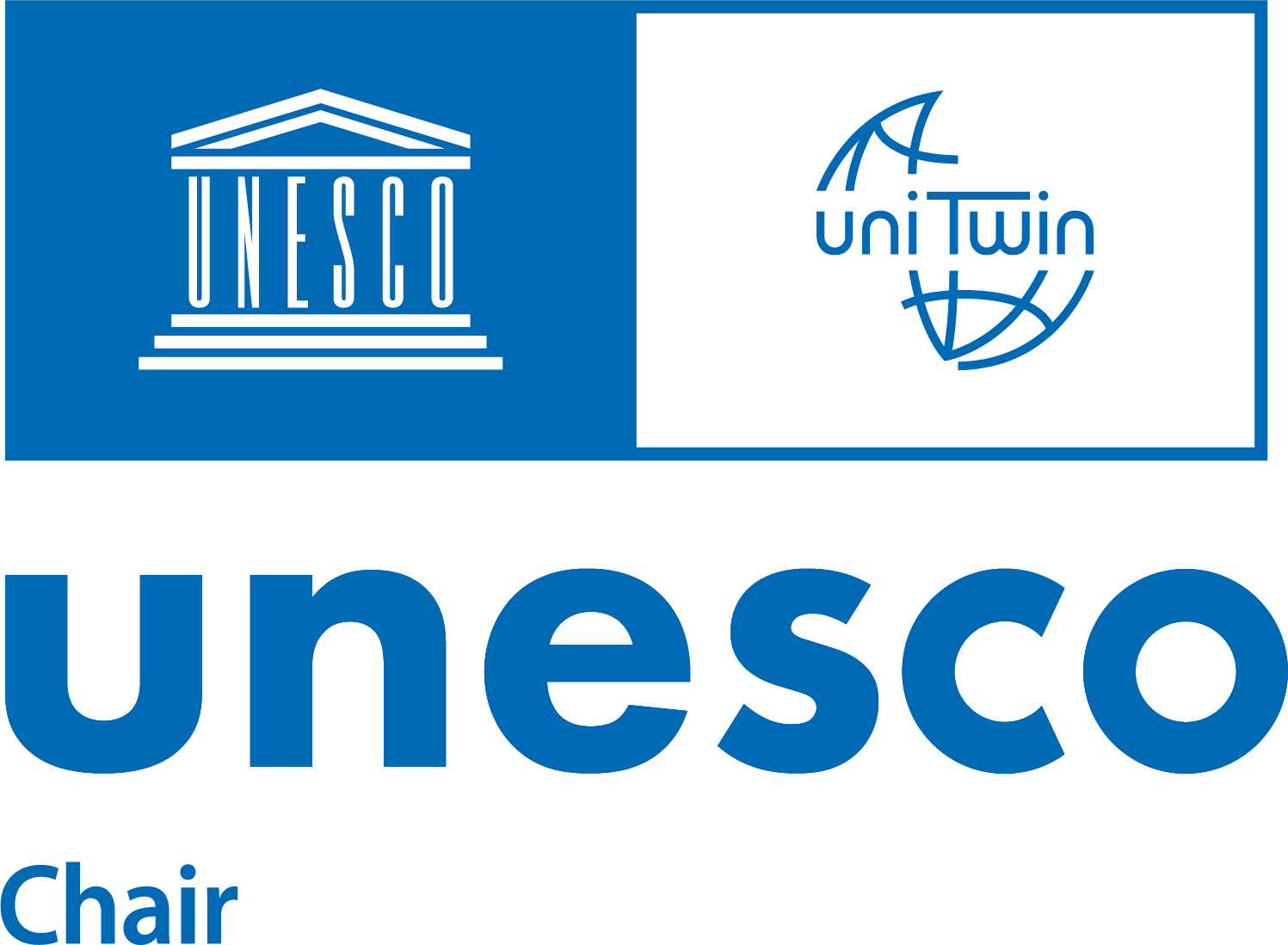ERASMUS+ BIP SUMMER SCHOOL 2023: International and UNESCO related Perspectives of Aesthetic, Arts, and Cultural Education
About our ERAMUS+ BIP Project
In February 2024, for the first time in more than 10 years, UNESCO held a World Conference on Culture and Arts Education. The declared goal of this conference was to adopt a new framework for Culture and Arts Education that meets the immense challenges and transformation processes of our time. As UNESCO Chair in Digital Culture and Arts in Education we were intensively involved in this development process and strived to also include our students and their perspectives in our consultations. In this context we were particularly pleased to be able to pursue this goal together with partner universities from the European Network of Observatories in the Field of Arts and Cultural Education (ENO).
The aim of this ERASMUS+ BIP Programme was first of all to get to know international and especially UNESCO related perspectives of Cultural, Aesthetic, and Arts Education and to deal with them in a critical and reflective way. In this context, the program’s Summer School, which took place in Nuremberg, Germany, July 10-14, 2023, was preceded by an (a-)synchronous online seminar phase in which participants learned more about the history as well as the institutional structure of the UN and UNESCO, and addressed the fundamental question of why it is important to engage with an international or global or planetary perspective of arts education as a first step.
In a second step, the participants dealt with the institutional logics of UNESCO when it comes to culture and arts education. The analysis focussed on central documents (reports, mission papers, policy papers, public relations products, etc.) of UNESCO and other stakeholder institutions. The aim of the reconstructive examination of these publications and projects was to develop a critical-reflective frame of reference for the subsequent onsite project phase in Nuremberg, in which topic-specific inputs alternated with free workshop phases.
Sunday, July 9, 2023 – ARRIVAL
Monday, July 10, 2023 – Making a start
| 9 – 9.30 | Arrival – Start of the Day Room: Side Foyer |
| 9.30 – 10 | Welcome Ceremony and Greetings Room: AkademieLAB |
| 10 – 10.30 | Group photo with Meet and Greet – Getting to know each other Room: Side Foyer / Courtyard D |
| 10.30 – 12.00 | Keynote: “Planetary Perspectives on and of Arts and Cultural Education” Christoph Wulf, Vicepresident of the German UNESCO Commission Room: AkademieLAB |
| 12 – 13.30 | Lunch Break |
| 13.30 – 15.00 | Lecture I: “Theoretical Perspectives on Arts and Cultural Education” Leopold Klepacki, Associate Professor, UNESCO Chair in Digital Culture and Arts in Education, Friedrich-Alexander-Universität Erlangen-Nürnberg, Germany Tanja Klepacki, Senior Researcher UNESCO Chair in Digital Culture and Arts in Education, Friedrich-Alexander-Universität Erlangen-Nürnberg, Germany Room: AkademieLAB |
| 15.00 – 15.30 | Convenience Break |
| 15.30 – 16.30 | Lecture III: “Road Map & Seoul Agenda – Critical Perspectives” Ernst Wagner, Academy of the Fine Arts, Munich, Germany Room: AkademieLAB |
| 16.30 – 17.00 | End of the day in plenary session Room: AkademieLAB |
| 17.00 – 18.00 | Travel time to Nuremberg City Centre |
| 18.00 – 20.00 | Nuremberg City Tour | Meeting point: Infostelle Geschichte für Alle e.V. im Henkerhaus (Trödelmarkt 58, 90403 Nürnberg) |
| 20.00 – 22.00 | Joint Welcome Dinner | Literaturhaus Nürnberg (Luitpoldstraße 6, 90402 Nürnberg) |
Tuesday, July 11, 2023 – Policy Papers & Actions
| 09.00 – 09.30 | Arrival – Start of the Day Room: Side Foyer |
| 09.30 – 10.30 | Student Working Groups: A critical reading and re-writing (?) of the Road Map, the Seoul Agenda, the Porto Santo Charta, etc. Room: AkademieLAB |
| 10.30 – 10.45 | Convenience Break |
| 10.45 – 11.45 | Lecture IV: “The Porto Santo Charta” Sara Brighenti, Deputy Commissioner, National Plan of the Arts, Lisbon, Portugal Room: AkademieLAB |
| 11.45 – 13.15 | Lunch Break |
| 13.15 – 14:15 | Lecture V: “Another Road Map” Carmen Mörsch, Professor of Art Didactics, Kunsthochschule Mainz, Germany & Janna Graham, Lecturer in Visual Cultures, Goldsmith University of London, UK Room: AkademieLAB |
| 14.15 – 14.30 | Convenience Break |
| 14.30 – 16.00 | Student Working Groups: A critical reading and re-writing (?) of the Road Map, the Seoul Agenda, the Porto Santo Charta, etc. Rooms: AkademieLAB, Freiraum, Kind&Kegel, Courtyard D |
| 16.00 – 17.30 | Lecture II: “Post- and De-Colonial Perspectives on and of Arts and Cultural Education” Jacques Zannou, Assistant Researcher UNESCO Chair in Digital Culture and Arts in Education, Friedrich-Alexander-Universität Erlangen-Nürnberg, Germany/Benin Room: AkademieLAB |
| 17.30 – 18.00 | Plenum: Summary and conclusion of the day Room: AkademieLAB |
| 18.00 – … | Time at free disposal |
Wednesday, July 12, 2023 – Cultural Sustainability and Cultural Resilience
| 09.00 – 09.30 | Arrival – Start of the Day Room: Side Foyer |
| 09.30 – 10.30 | Lecture VI: “Cultural Sustainability & Cultural Resilience as tasks of Cultural Education in Post-Digital Times” Benjamin Jörissen, UNESCO Chair in Digital Culture and Arts in Education, Friedrich-Alexander-Universität Erlangen-Nürnberg, Germany Room: AkademieLAB |
| 10.30 – 11.00 | Convenience Break |
| 11.00 – 12.00 | Lecture VII: “Doing things with stories” Edwin van Meerkerk Room: AkademieLAB |
| 12.00 – 13.30 | Lunch Break |
| 13.30 – 16.30 | Student Working Groups Rooms: AkademieLAB, Freiraum, Kind&Kegel, Courtyard D |
| 16.30 – 17.30 | Organisational Stuff & Travel Time |
| 17.30 – 19.30 | Guided Tour of the former Nazi Party Rally Grounds + Documentation Centre Meeting point: Documentation Centre (Bayernstraße 110, 90478 Nürnberg) |
| 19.30 – 22.00 | Optional Joint Dinner | Café Wanner (Bayernstraße 150, 90478 Nürnberg) |
Thursday, July 13, 2023 – Research & Methodologies
| 09.00 – 09.30 | Arrival – Start of the Day Room: Side Foyer |
| 09.30 – 10.30 | Lecture VIII: “Ethnography as a tool to link action and research in the framework of arts and cultural education” (Working title) Lígia Ferro, Universidade do Porto, Portugal Room: AkademieLAB |
| 10.30 – 11.00 | Convenience Break |
| 11.00 – 12.00 | Lecture IX: “Participatory research methods: Striving towards participatory engagement in museum education” Elina Vikman, Institute of Arts and Cultural Studies, Latvian Academy of Culture, Latvia Room: AkademieLAB |
| 12.00 – 13.30 | Lunch Break |
| 13.30 – 15.30 | Student Working Groups Rooms: AkademieLAB, Freiraum, Kind&Kegel, Courtyard D |
| 15.30 – 16.00 | Convenience Break |
| 16.00 – 18.00 | Student Working Groups Rooms: AkademieLAB, Freiraum, Kind&Kegel, Courtyard D |
| 18.00 – 18.30 | Plenum: Summary and conclusion of the day Room: AkademieLAB |
| 18.30 – … | Time at free disposal |
Friday, July 14, 2023 – Making a Difference
| 09.00 – 09.30 | Arrival – Start of the Day Room: Main Foyer |
| 09.30 – 10.30 | Student Group Presentations Room: Großer Saal |
| 10.30 – 11.00 | Convenience Break |
| 11.00 – 12.00 | Student Group Presentations Room: Großer Saal |
| 12.00 – 13.30 | Lunch Break |
| 13.30 – 15.30 | Student Group Presentations Room: Großer Saal |
| 15.00 – 15.30 | Convenience Break |
| 15.30 – 16.30 | Student Group Presentations Room: Großer Saal |
| 16.30 – 17.00 | Summary and Conclusion Room: Großer Saal |
| 18.00 – 22.00 | Joint Dinner & Final Evening | Tel Aviv-Jaffa (Spohrstraße 16, 90429 Nürnberg) |
Saturday, July 15, 2023 – DEPARTURE
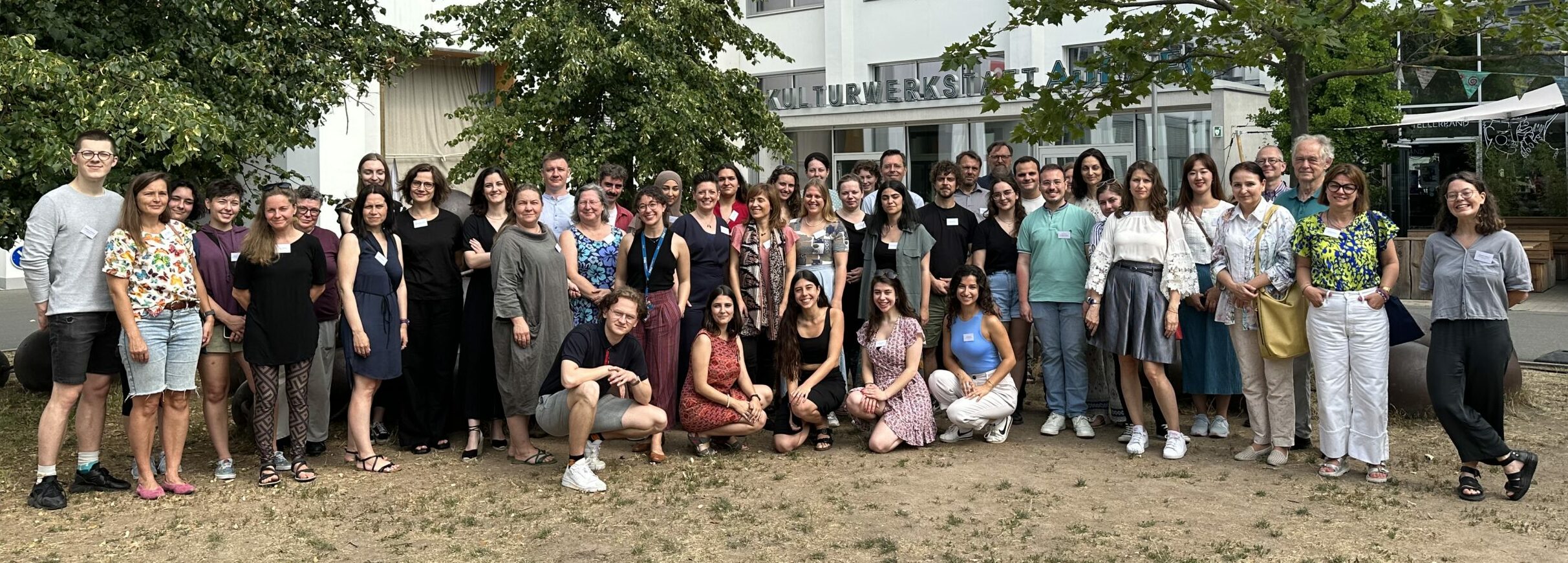 |
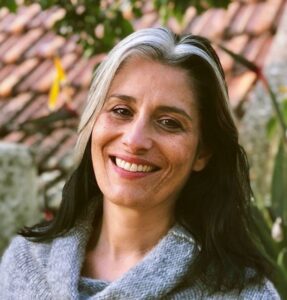 |
Sara Brighenti is a museum professional. She is currently the deputy commissioner of the National Plan for the Arts. Previously the director of the Money Museum, managing the installation project, exhibitions and public programmes. She specialised in artistic and cultural education at museums, theatres and heritage sites. MA in Visual Arts, Post Graduated in Museology and Heritage, Pedagogy and Leadership. She was promoter and co-author of the Porto Santo Charter, Culture and the Promotion of Democracy: Towards a European Cultural Citizenship (2021), co-author of the ReportMuseums in the Future (2020). |
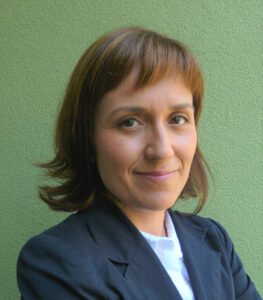 |
Lígia Ferro is a professor in the Sociology Department, Faculty of Arts – University of Porto. She received her European Ph.D. from the University Institute of Lisbon, ISCTE-IUL (2011). She was a visiting scholar at several universities in Europe, the United States of America and Brazil. Lígia Ferro is President of the European Sociological Association and is a member of the board of the European Network of Observatories in the Fields of Arts and Cultural Education – ENO. She is the author and editor of several publications in Portuguese, English, Spanish, and French. Lately, she has been working on cultural practices, arts education, migrations, and action research, especially in urban contexts. |
| Janna Graham is a practice-based researcher at Goldsmiths University where she runs the BA in Curating. She has worked between arts education and curatorial practice for nearly twenty years, occupying long term positions at institutions such as Whitechapel, Serpentine Galleries (London), the Art Gallery of Ontario (Toronto), Nottingham Contemporary (Nottingham) and developing projects for Project Arts Centre (Dublin) Vanabbemusum (Netherlands), the New Museum (New York), documenta (Kassel) among others. She has developed exhibitions, residencies, research and writing at the intersection of art and contemporary social urgencies including the struggles around migration, gentrification, education, anti-racism and indigeneity. From 2008-13 Graham was initiator and curator of the Centre For Possible Studies, an offsite curatorial programme of Serpentine Galleries that included artistic residencies and research projects in London’s Edgware Road neighbourhood; exhibitions at Serpentine Galleries (On The Edgware Road, 2011; Bidoun Library, 2012; Re-Assembly, 2013); and publications including ‘On the Edgware Road’, (2011) and ’Art + Care: A Future’(2013) and Studies on a Road, (2016). More recently, with Gargi Battacharyya, Kirsten Forkert and Federico Oliveri, she co-authored the book How Conflicts and Media Make Migrants (MUP, 2021). | |
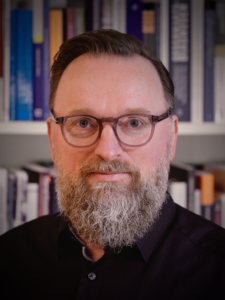 |
Benjamin Jörissen (PhD) is Full Professor of Education with a focus on Culture and Aesthetics and Chairholder of the UNESCO Chair in Digital Culture and Arts in Education at the Friedrich-Alexander-Universität Erlangen-Nürnberg (Germany). The Chair’s research aims to contribute to an understanding of the role of aesthetic, arts, and cultural education in a transforming and diverse world. Fields of work include the development of an understanding of Bildung with regard to cultural resilience and cultural sustainability, empirical research in postdigital culture including several research projects on digitalization in arts and cultural education. Jörissen is, amongst others, member of the European Academy of Sciences and Arts, Speaker of the UNESCO UNITWIN Network Arts Education Research for Cultural Diversity and Sustainable Development, as well as member of the Expert Committee on Intangible Cultural Heritage and the Expert Committee on Culture of the German UNESCO Commission.
As an educational scientist, Jörissen is known for his work on aesthetics, media and educational theory. His work focuses on the concept of Bildung, which he understands as a relational, i.e., superindividual, transformative and dynamic process of self and societal development. Within this framework, he explores the role of digital media and technology in education, particularly in terms of how they impact the cultural and societal dimensions of Bildung. Overall, Jörissen’s work is notable for its interdisciplinary approach, drawing on philosophy, critical theory, cultural studies, media theory, and qualitative (reconstructive) research in order to develop a nuanced and critical understanding of education as a dynamic and transformative process. |
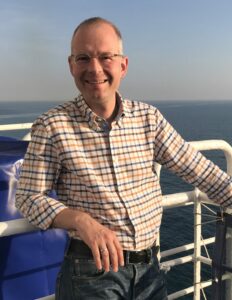 |
Leopold Klepacki, Ph.D., is Associate Professor and Academic Director at the Institute for Pedagogy at Friedrich-Alexander-Universität Erlangen-Nürnberg, Germany. His research focuses on cultural and aesthetic education, processes of cultural transmission and transformation, sustainable cultural practice and cultural resilience, and cultural-theoretical foundations of pedagogy. |
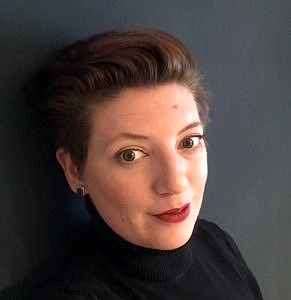 |
Tanja Klepacki, (PhD), works as senior researcher at the UNESCO Chair in Digital Culture and Arts in Education at the Friedrich-Alexander-Universität Erlangen-Nürnberg, Germany. Amongst others, she serves as executive manager of the Chair’s Academy for Digital Culture and Performative Education in Nuremberg. Her fields of interest include theoretical and empirical studies in the fields of culture, aesthetic and arts education, cultural heritage and transformation dynamics as well as cultural sustainability and cultural resilience. |
|
Dr. Carmen Mörsch is Professor for Art Education at Mainz Academy of Arts, Johannes Gutenberg University, Germany. Her interests lie in re/constructing histories, concepts and practices in art education starting from a queer-feminist and post-colonial/critical race perspective. From 2003 to 2008 she has been assistant professor for material culture education at the at Carl von Ossietzky University Oldenburg, Germany. From 2008 to 2018 she has been head of the Research Institute for Art Education at the Zurich University of the Arts, Switzerland. From 2012 to 2021, she has been working as a guest professor at the University of Applied Arts in Vienna, Austria, conducting the PHD Programme “Art Education”. She has been working as a consultant for museums and their education programs internationally and as a visiting Scholar i.e. at the Fundacion Museos de la Ciudad Quito, Ecuador; Master Cultural Production, Mozarteum, Salzburg University; Museum Ludwig Cologne, Germany, OOR Gallery, Vancouver; Camberwell College of Art, MA Curatorial Studies, London; Wits School of the Arts, University of Witswatersrand, Johannesburg; PERMEA, Universidad de Valencia, MA Art Education at the NYU; Institute for Curatorial Research & Practice at the School of the Art Institute, Chicago and CCS Bard. Currently she is consulting the looking at institutional transformation through a lense informed by Crticial Diversity Literacy. Together with Dr. Nora Landkammer, she forms the collective e-a-r (education and arts research). She is a member of the network “Another Roadmap for Arts Education” which unites scholars and practitioners who seek to analyse and develop art education collaboratively in an emancipatory and decolonizing perspective. |
|
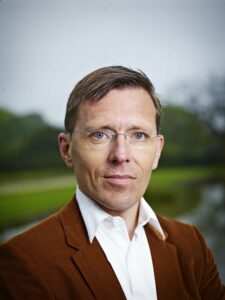 |
Edwin van Meerkerk is associate professor at the department of Modern Languages and Cultures at Radboud University. He specialises in arts education, cultural policy, and sustainability. He also works as endowed professor Social and Cultural Sustainability at ArtEZ University of the Arts. He is one of the editors of the forthcoming third ENO yearbook, which is devoted to Arts and Cultural Education in a Challenging and Changing World. |
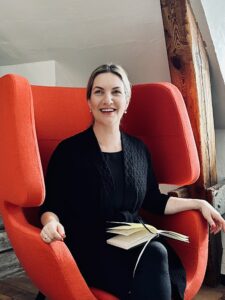 |
Elīna Vikmane is the director of MA study programme “Cultural Heritage Governance and Communication” at Latvian Academy of Culture, the member of Digital Transformation working group at Network of European Museum Organisations (NEMO), the board member of the Latvian Museum Association and Latvian Contemporary Art Museum Foundation. In 2023, her PhD thesis research proposal “Advancing cybermuseology: Digital innovation diffusion in museum sector” was awarded Aina Birnitis Fellowship in humanities for Latvia by The Association for the Advancement of Baltic Studies (USA). In 2021, she was awarded “Emerging Scholar Award” from the global “Inclusive Museum Research Network”, Her interests are mainly related to the museum theory and practice with the focus on dynamics of the digital advancement of museums and a social role of culture and cultural heritage in particular. In 2023, her project proposal “Striving Towards Participatory Engagement in Museums: Inquiry into Museum Education Practice in Latvia (MEET)” was selected as one of four three years projects in humanities by Latvian Science Council (overall success rate – 7,5%). Previously, she has been involved in research projects, such as “The Art of Nationalism: Social Solidarity and Exclusion in Contemporary Latvia” and “Cultural Capital as a Resource for Sustainable Development of Latvia/CARD”. In 2021, she has received numerous r research grants for doctoral students from Institute of Arts and Cultural Studies, and a grant “To Support Research Activities and Dissemination of the Findings” from the State Culture Capital Foundation of Latvia. |
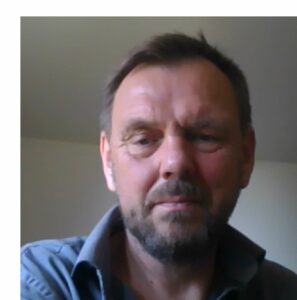 |
Ernst Wagner, Ph.D., studied painting and sculpture at the Academy of Fine Art in Munich, Germany. In a second course of study (art history, philosophy, ethnology) he earned a doctorate in art history at the Ludwigs-Maximilian-University of Munich. Today he is researching in international networks, and teaching at the University of Munich and at the UNESCO Chair in Arts and Culture in Education. His main areas of interest are arts education and sustainable development (in a broad sense); international and transcultural pedagogy; transnational artistic projects.
|
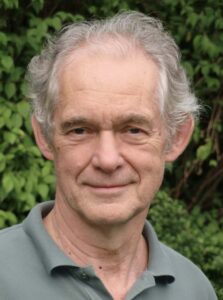 |
Christoph Wulf is Professor of Anthropology and Education and a member of the Interdisciplinary Centre for Historical Anthropology, the Collaborative Research Centre “Cultures of Performance” (SFB, 1999-2011), the Cluster of Excellence “Languages of Emotion (2007-2012), and the Graduate Schools “Body Staging” and “InterArts” at Freie Universität Berlin. His books have been translated into 20 languages. For his research in anthropology, he has received the title of a professor honoris causa from the University of Bucharest and has been nominated honorary member of the German Society for Educational Research, in which he founded the commission “Educational Anthropology”. He is Vice-President of the German Commission for UNESCO. He has been visiting professor or been involved in research projects at many locations across the world, including Stanford; Tokyo, Kyoto; Beijing; Shanghai; Mysore, Delhi; Paris, Rome; Amsterdam; Stockholm; Copenhagen; London; Vienna; Lisbon; Saint Petersburg, Moscow, Kazan; Sao Paulo. Major research areas: historical and cultural anthropology, educational anthropology, rituals, gestures, emotions, imagination, intercultural communication, mimesis, aesthetics, epistemology. Christoph Wulf is editor, co-editor and member of the editorial staff of several national and international journals. |
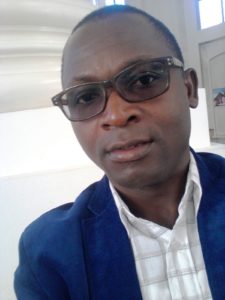 |
Jacques Zannou is an assistant researcher at the UNESCO Chair in Digital Culture and Arts in Education (UCACE) at the Friedrich-Alexander-Universität Erlangen-Nürnberg (Germany). He received his M.A. in Intercultural, Media and Adult Education from the Bundeswehr University in Munich. His research focuses on the cultures, identities and social realities of people from the Global South and Global North, applying decolonial and postcolonial approaches. In his PhD project, he intends to explore concepts for education suited for the post-digital age that can curb colonial continuity and promote sustainable development. The empirical reconstruction of implicit perceptions that people in the Global South and Global North have about the manifestations of colonial continuity will serve as a basis for drafting concepts of decolonial education. At the UNESCO Chair, he takes on tasks regarding communication and coordination for the publication of the international, peer-reviewed, open-access “Journal for Research in Aesthetic, Arts and Cultural Education”. |
Kulturwerkstatt Auf AEG (Fürther Straße 244d, 90429 Nürnberg, Germany)
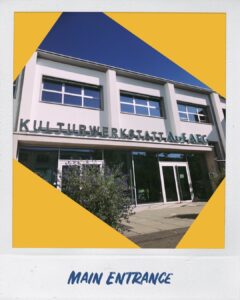
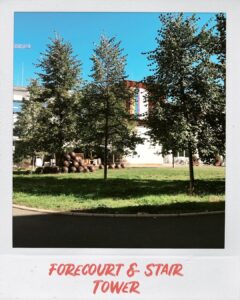
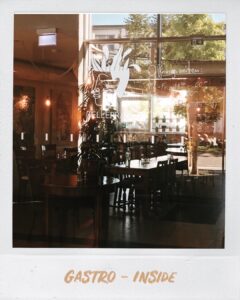
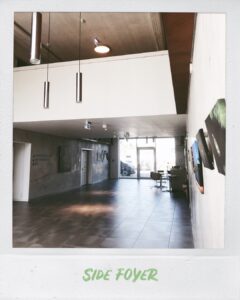

 |
In the spirit of ecological sustainability, we ask our guests and event participants to arrive by public transport, bicycle or walking whenever possible.
Thank you very much!
|
Bicycle:
Bicycle parking is available in sufficient numbers and in close proximity to the main and side entrances next to the Kulturwerkstatt stair tower.
Public transport:
Nearest subway stop: Line U1 “Nürnberg/Eberhardshof” (approx. 10 minutes travel time from Nuremberg main station and a 5 minute walk).
Information for car drivers:
If it is not possible for you to avoid traveling by car, we kindly ask you – whenever possible – to form carpools and to use the (few) free parking spaces along Muggenhofer Straße. The parking area shown on the map is no longer available due to construction work.
Please do not park directly on the company premises!
